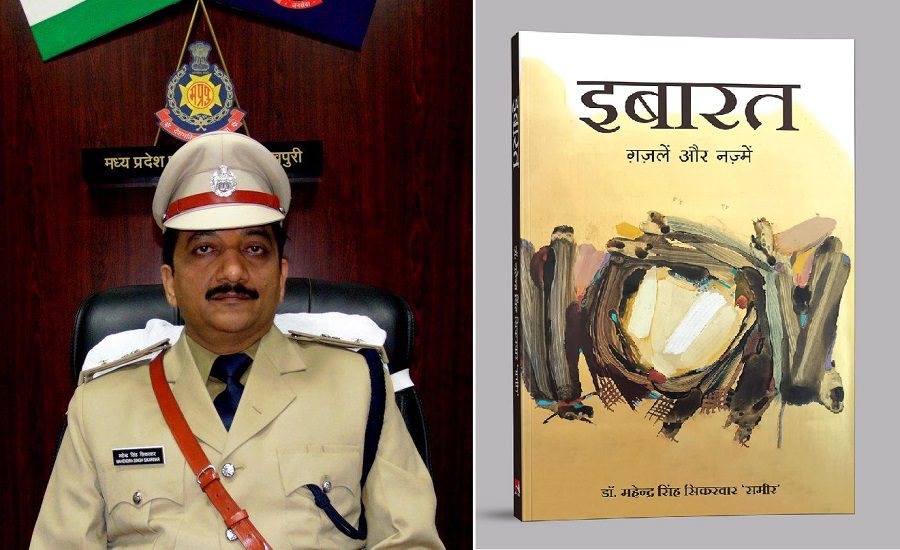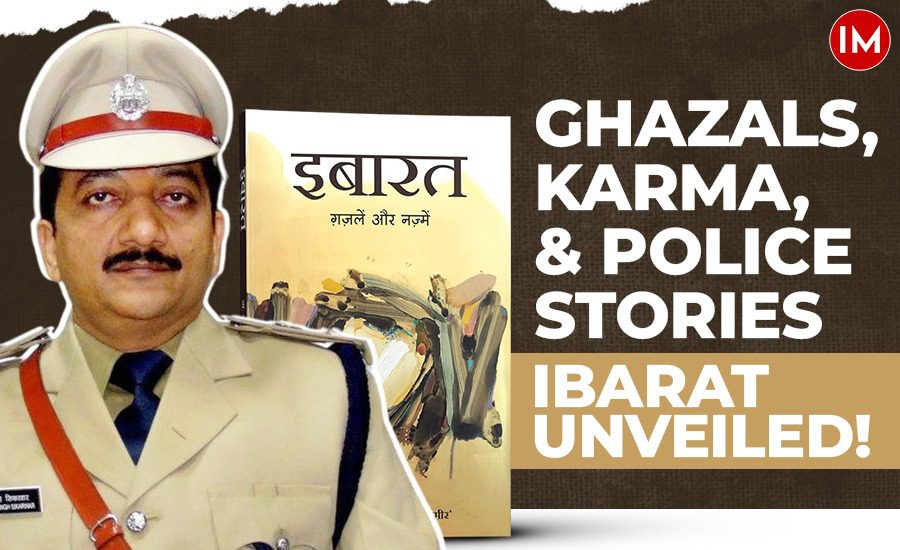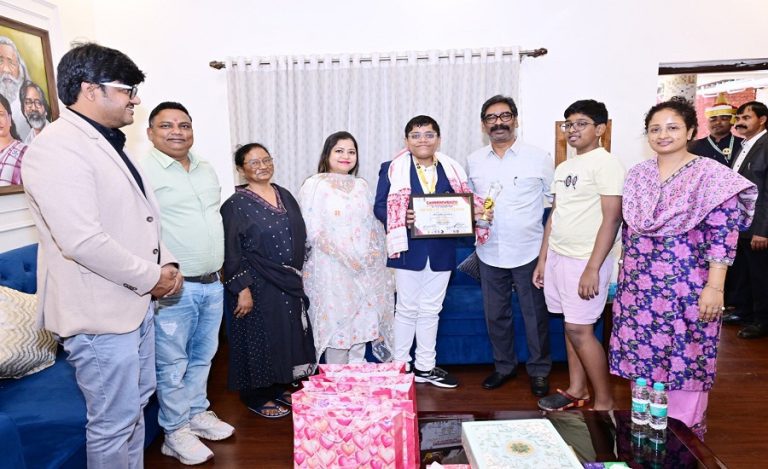Life is a one-time journey, filled with moments that shape us. We experience countless emotions, but while most people reflect on these moments briefly and move on, poets and writers preserve them. They transform fleeting thoughts into lasting art – capturing life’s essence in words. Mahendra Singh Sikarwar, a senior IPS officer from the 2003 batch and the current IG of Rewa Range, is one such poet. His reflections and emotions are now encapsulated in ‘Ibarat,’ a collection of ghazals that recently debuted at a unique confluence of art, culture, and civic awareness in Rewa.
Growing up in Chambal, an area once notorious for dacoits, it’s fascinating how he managed to cultivate a poetic spirit while pursuing a career in the civil service. His debut collection is like a fresh breeze – capturing both the beauty and the challenges of life in poems that will engage readers from start to finish. The verses explore the nuances of past and present, reflecting on their complexities, contradictions, and timeless qualities.
Indian Masterminds had the opportunity to speak with Mr. Sikarwar, gaining insight into his journey and the inspiration behind his book.
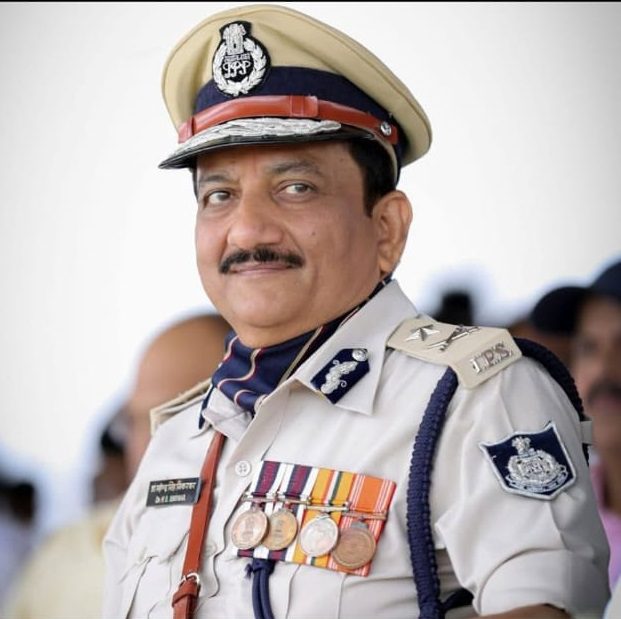
THE BEGINNINGS OF A PROLIFIC CAREER
Sikarwar hails from the Morena district of Madhya Pradesh, an area where the uniform holds a special allure. Many people in his community either join the army or aspire to join the police. Sikarwar, too, had dreams of joining the army. He even appeared for the NDA exam but, after failing, redirected his focus toward preparing for the civil services. He studied in Prayagraj (formerly Allahabad), where he found himself increasingly drawn to books. He recalls how, even back then, tea stalls in Allahabad would buzz with discussions on international issues, an environment that further fueled his interest in reading.
After completing his post-graduation, he attempted the UPSC exam twice, in 1984 and 1985. While he reached the interview stage both times, his name didn’t appear on the final list. Disheartened, he decided to move on from UPSC. However, encouraged by his mother, he gave the MPPCS (Madhya Pradesh Public Civil Services) exam in 1986 and passed it on his first attempt. In 2003, he was promoted to IPS and has since served as SSP in multiple districts of MP. His career also saw him take on important roles, including DIG of Narcotics, Additional Commissioner of Transport, and IG of several ranges.
THE BOOK & INSPIRATION
Starting his journey in the challenging role of a policeman and growing up in the rugged terrain of Chambal, Sikarwar connects deeply with the essence of Malwa, a bond that clearly reflects in his writing. Although this is his first book, he has skillfully blended Urdu and Hindi, using simple Devanagari to bring to life the voices of loved ones and dreams within his words. Sikarwar has the rare ability to convey profound emotions in an uncomplicated, accessible manner. Many of his ghazals and poems are likely to linger in the minds of readers for years to come.
Ibarat is a 132-page collection, featuring 102 ghazals and about 6 poems.
He shared, “These are my emotions. I’ve put into words the feelings that have been building inside me for a long time. I’ve been writing for several years, and though this is my first book, my articles and writings have been published in various places.”
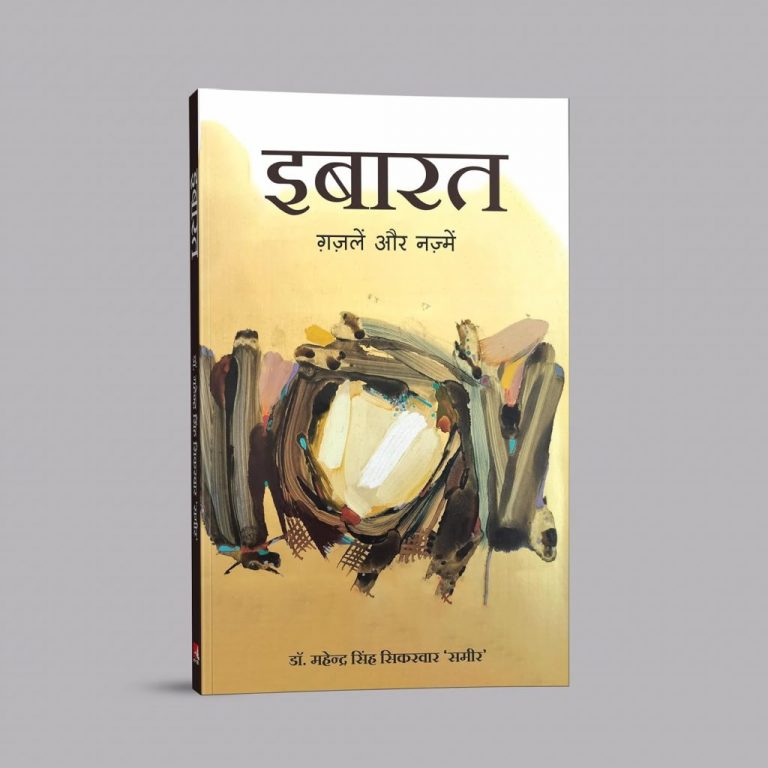
GHAZAL & NAZM
Sikarwar considers the renowned poet Gopaldas Neeraj as his literary guru. Neeraj once said, “Being a human is a fortune, being a poet is a greater fortune.” This profound thought resonates deeply with Sikarwar, who also sees himself as fortunate for being both a human and a poet. He explains that the central theme of his book is ‘Jeevan Ki Ibarat’ (The Lessons of Life), encapsulating a wide range of emotions.
As the book belongs to the Ghazal genre, it remains rooted in its traditional form, weaving poetry that is open to interpretation. He explains that one unique aspect of Ghazals is that each couplet can be understood in different ways, allowing for greater freedom in expression – a characteristic not found in Nazm. In contrast, Nazm requires a more structured and fixed approach. The book also includes several Nazms, one of which, titled Ibarat, is entirely inspired by the philosophy of the Bhagavad Gita, particularly its emphasis on the supremacy of karma.
A BOOKWORM
Since childhood, Sikarwar has been a top performer in academics, with studying being his true passion. This dedication is clearly reflected in his journey. He first completed his B.Sc. and M.Sc. in Chemistry. Later, he moved to Prayagraj to prepare for the civil services, while also pursuing a post-graduation (M.A.) in Political Science again. Additionally, he earned a PhD in Political Science from Vikram University and an LLB from Gwalior University. Sikarwar says that no matter where he was posted, he always found a way to continue his studies or engage in something productive.
He has already begun working on his next book, which is set to be released in the coming months. His heartfelt desire is to write a book about his life in the police force, something he plans to start soon. He believes that there are many fascinating stories from the lives of police officers that should be shared with the public. “These stories, he says, will not only inspire people but also shed light on the challenging conditions under which police officers work,” he added.
